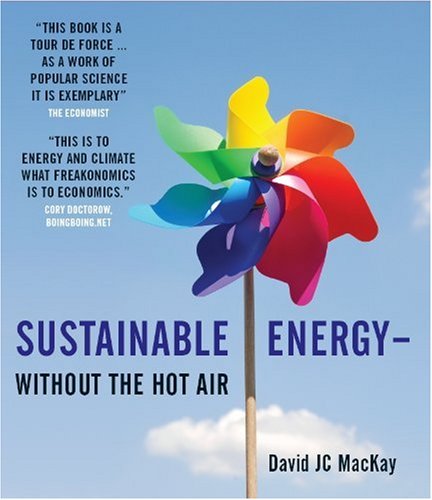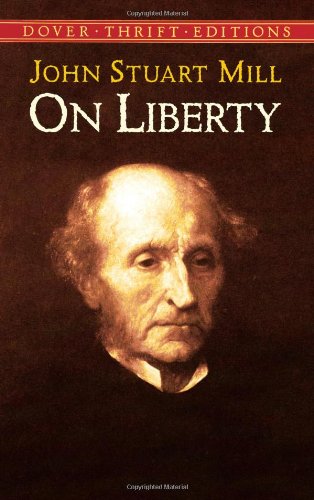David J. C. MacKay – Sustainable Energy – Without the hot air (2009)
A back-of-the-envelope approach to what it would take to run the world entirely on renewable energy. MacKay more or less dismisses large-scale wind, wave and bioethanol farming, (the W/m2 and W/m ratios are too low), but he does believe in electric cars, (because they’re more effcient, and enable non-fossil electricity), trains (very efficient, even at high speeds), and biking, (the most efficient mode of transport of them all, even when we take your food into account). He concludes that a renewable lifestyle in our time is at least theoretically possible by using a large amount of solar desert power and/or nuclear power. Whatever we do, it has to be big, not half-hearted “unplug your phone charger” campaigns. “If everybody does a little, we achieve only a little.”
Recommended: Strongly, for the numbers-literate and visual approach, although the specifics are unconvincing. For instance, he uses the known reserves of uranium to conclude that we’re in danger of soon running out of it, if we used it as a primary energy source. Judging from the notes, it seems he is aware of how meaningless this value is for his purpose, (exploration is driven by prices, we find when it’s profitable to go looking), but he still uses it. Why? Garbage in, garbage out. Also, how relevant is “renewables only” as a near-future goal? The result is a thought experiment, although an interesting and well presented one.









